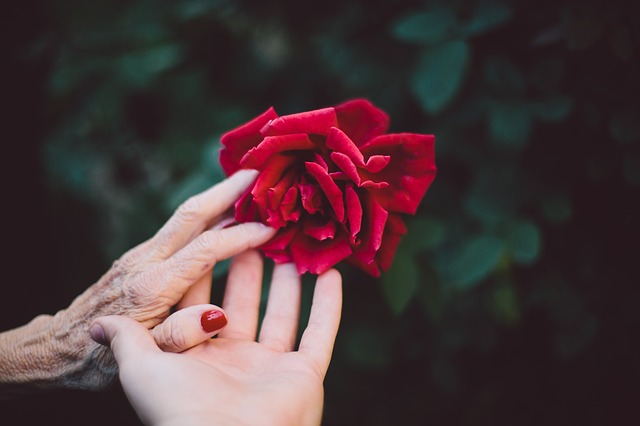I asked before sleep to let me know what to write in the morning . . .
Love is emotionally and comprehensively quite embedded in illusion, delusion and meaning.
But, “A” is in love with “B”, ”B” feels herself to be in love with “A”. They felt that cosmic resonance that many experience and yearn for. The magic and the nightmare of consequences are epic. It is a common characteristic at the core of what most members of the human species call love (there are some similarities in other species as well). It is an emotional force of a biological imperative to urge propagation. Its psychological purpose is to join in nourishing each other, a union of caring and survival. Its outcome is generally a bonding, one with the other—family, tribe, and community.
The actual experience is most often not at all what was projected while in the origins of attraction.
Those who look objectively at the tales of romance see the tragic outcomes for many of them. From betrayal and murder, to poisoning and suicide.
One element of every relationship is the karma of the individuals. ‘Karma’ is seemingly embedded in certain aspects and content of one’s inherited neural matrix, which drives the character and behavior of an individual’s life that is filled with the DNA of one’s parents. In this case ”A” is giving himself to “B” and “B” to “A”. Each holds the mystery of what will manifest in their future.
Here’s the dilemma:
After the bonding is fixed, the tribal statement of engagement, traditional obligations to family/tribe, and emotional commitments to each other, are expected to be met.
In this situation “B” has older parents. Both are around 60 years old. The mother divorced the father and is living with, supporting and taking care of her 80 year old mother. They are struggling to get along in the stress of expense and aging.
“B’s” father lives in the south, is unmarried, unemployed, an alcoholic, living with a woman who believes “B” is obligated to take care of him. The older couple are living in an old house needing maintenance and repair. He is depressed and lost to active engagement in life with barely enough income to provide for maintaining himself, a house, and an angry, anxious and frightened partner of similar age.
“B” feels deeply, honestly, about him and his well being and survival. She is concerned and worries about his declining ability to take care of himself psychologically and materially as he gets older.
She also suffers the judgment of his female partner who psychologically demands that “B” is obliged to take of care of him because he is unable to take care of himself..
“B” is unable to do this. She hasn’t the resources.
Compassion, sentiment, and confusion are at the core of what she believes are her responsibilities to herself and/or for someone else’s life. A life that is also a genetic bond—her father having brought her into the world—the source of her existence.
I can’t think of a more painful sense of conflict about the meaning of love, genetic bonding, and the question of one’s responsibility to others and oneself.
Another question arises, “What is the responsibility to myself?” and “Can I, must I, bury myself in someone else’s karma?” “Does the genetic bond oblige me to sacrifice my life for theirs?”
If I look at the circumstance objectively, “B’s” father is willing to burden her in an extreme of his continuing decline. If she accepts or believes she has no other choice but to care for her father, how will she do it? She may even be aware of her own self-destruction if she gave herself over to that which she is unable to provide. She may well know it is a lost cause and a misuse of her own life.
What happens to her sense of self? What is the meaning of love? Where is the confidence in love if she turns him down and rejects him as not her responsibility?
She won’t ever forget such a decision. She will have to learn to accept it, but it will haunt her for the rest of her life. She would have a sense that she abandoned her father in his time of need.
The answer lies in accepting the boundaries of the survival of one’s self. If she can’t survive herself, she can’t provide help for anyone else. She can only do this where it provides for her survival as well.
Then one has to learn to digest the reality of truth. Which burden is more dense? What is the boundary in the abandonment of trust?
I can’t think of a more difficult dilemma, either way it carries a burden of spirit, but I think sometimes a ruthless objectivity is necessary to maintain the strength of useful sacrifice rather than meaningless idealism.
Now look at what “A” and “B” take on with their bonding of each other. This does not always happen, but often enough in the common experience of exchanging and sharing, life’s unexpected burdens are carried in the hidden karma of each individual.
This is the most demanding spiritual strength I can imagine. Do what is right for your own survival so that you will have the means to provide assistance to another . . .
Apply your oxygen mask first.

